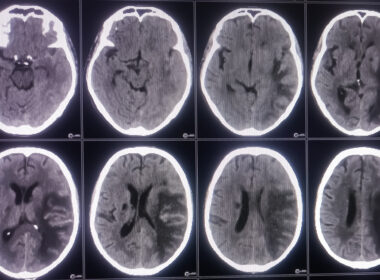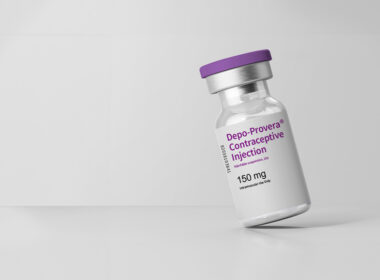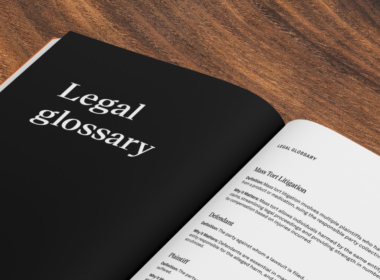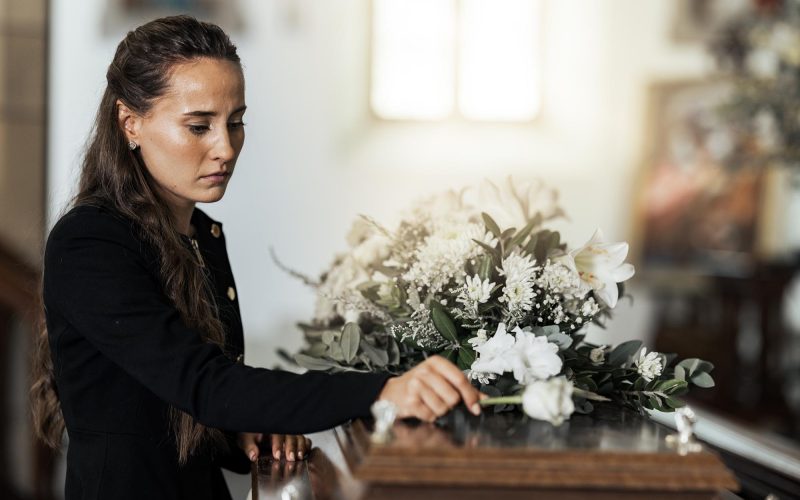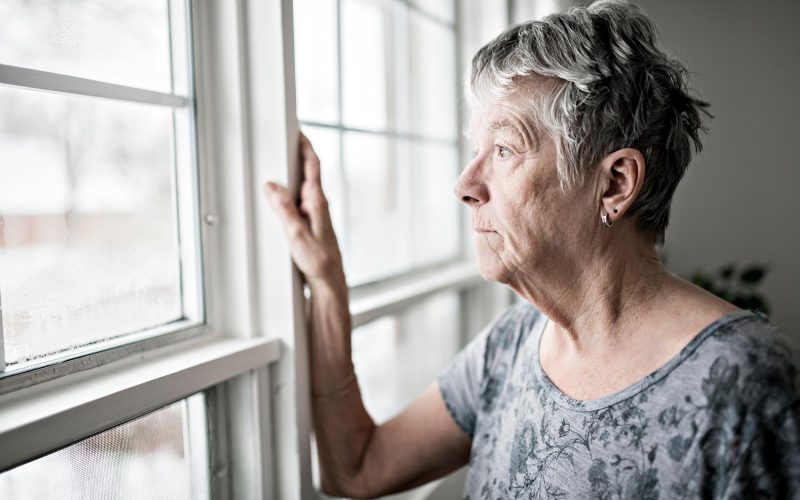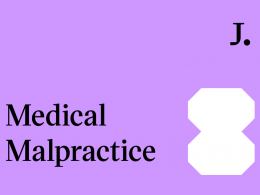Elder abuse is a saddening issue that has invaded all parts of our society, including nursing homes. Nursing homes have always been assisted living facilities where we can expect our loved ones to be treated with care. However, this doesn’t seem to be the case anymore.
More than 14,000 elders were reported to be victims of some form of nursing home abuse in 2014. And according to a study, 64% of a test group of nursing home employees confessed to being guilty of elder abuse since 2021.
These statistics are saddening enough but become worse when you realize that the culprits are the trusted nursing home staff. This abuse can come in different forms, including physical abuse and nursing home neglect. In unfortunate cases, these can lead to nursing home wrongful deaths.
What Are Nursing Home Wrongful Deaths?
When a resident dies in a nursing home due to negligence or physical abuse from the staff, the staff is liable for wrongful death. That means your loved one would still be alive if they received proper care and attention.
For instance, a nursing home resident dies after battling sepsis from infected stage 4 bed sores. Nursing home staff are to blame for the pressure ulcers occurring in the first place, and they also have some liability for letting the sores get infected.
The family members of this elder would have that as a burden. If our hypothetical elder had received better care, they’d probably be alive and well. In this case, the nursing home staff are to blame for their patient’s demise.
What Are The Major Causes Of Nursing Home Wrongful Deaths?
According to a study, nearly a third (31.8%) of nursing home residents die yearly. This makes life expectancy in nursing homes quite bleak. We could avoid many of these resident’s deaths in assisted living facilities with better care and attention.
For someone with a loved one in a nursing home, it would be best if you knew the causes of these deaths. It isn’t always easy to spot a wrongful death, so you would be safer if you knew them.
- Infections
Hygiene and cleanliness are necessary for nursing homes and every communal residence. Due to a large number of inhabitants, it would be easy for germs to spread in nursing homes.
The nursing home staff and health care professionals are meant to be on top of the situation, keeping the surroundings clean. That is more important when some elders have open wounds in the home.
It is a form of nursing home abuse if the elder is neglected and the wounds are not cleaned. When proper hygiene isn’t taken seriously, the elders could contact a lot of infections. Many of these infections can cost thousands of dollars in medical bills and still be fatal.
- Sepsis
This is a complication from infections that can easily lead to death. When germs invade the body, the immune system fights back. However, these retaliatory measures can be excessive and backfire, leading the immune system to damage its cells. That is called sepsis.
The damage from sepsis comes in three stages.
- Stage One (Sepsis): This is the early stage of sepsis, where the infection has entered the bloodstream, causing inflammation. Some symptoms include fevers or chills, fast heart rate or reduced blood pressure, difficulty breathing, and sweatiness.
- Stage Two (Severe Sepsis): The condition has deteriorated to organ failure at this stage. Some notable symptoms include bluish coloration of the skin, especially extremities like the fingers and toes, fatigue, and reduced urination. The patient may also experience some reduction in their mental ability.
- Stage Three (Septic Shock): This is the most critical point of this progression. In most cases, unconsciousness sets in here. At this stage, the patient’s blood pressure falls unnatural, leaving them barely responsive. In most cases, unconsciousness sets in here.
If left untreated or poorly managed, death is a likely outcome.
- Falls
It may seem surprising for falls to be on this list, but they are one of the leading causes of nursing home wrongful deaths. In 2003, 13,700 elders above sixty-five died from falls, with 1.8 million other victims treated in emergency rooms.
Elders have fragile, weak bones that would not handle as much damage as those of youths. With that in mind, it is understandable for the numbers to be this high.
These falls could result from wet floors, uneven surfaces, clutter, or nursing home neglect. Elders with mobility issues would require attention from nursing home staff when moving about. This doesn’t change when they use walking aids like canes or walkers.
If your loved one dies from a fall while on the watch of a nursing home staff, it may qualify as a nursing home wrongful death.
- Medication Errors
It is not uncommon for elders to be on medications. Many of them have conditions like hypertension and diabetes requiring constant administration of drugs.
In a nursing home, the staff would be charged with administering these drugs to the nursing home patients. However, when certain activities are done repeatedly, the attention put towards those tasks is reduced. It is at this point that staff can make mistakes.
The staff can administer the wrong drugs to the patient due to absent-mindedness, leading to fatal results.
- Suicide Due To Repeated Psychological Abuse
Psychological abuse is among the most common forms of elder abuse in nursing homes. The staff may not be negligent or physically abusive, but snide and cutting comments can do as much harm.
Only 1 in 25 cases of elder abuse is reported. This is bad because the effects of psychological maltreatment usually worsen when the victim suffers in silence. That can easily lead to suicide if the perpetrator is unrelenting.
- Physical Abuse
Nursing home staff are meant to care for the elders in their care. However, some bad eggs may use their position to cause intentional harm on the patients.
Nursing home residents are usually fragile, as stronger elders don’t find their way into these facilities. Compared to the staff that are typically in the prime of their youth, the elders don’t stand a chance. Resident on resident violence is also a constant threat.
These unbalanced confrontations can lead to the nursing home resident’s death.
- Under-staffing Of Nursing Homes
Elders need a lot of care and attention, but sometimes, there is poor nursing home care due to a lack of skilled staff. This is usually due to insufficient funding. Some residents may be neglected by accident when there aren’t enough professionals.
A study found that nursing home mortality rates decrease during recessions. This is because skilled employment in these institutions increases when there aren’t other jobs. These jobless professionals flock to nursing homes, giving them some sorely needed workforce.
Ensure you choose nursing homes that are adequately staffed for your loved ones to prevent these eventualities. When choosing nursing homes, you should remember that the cheapest option is not necessarily the best.
What Should You Do If You Suspect Wrongful Death
It is always sad when a loved one dies in a nursing home. The funeral and all the other activities are overwhelming for family members, leading to physical and emotional stress. With all these responsibilities, knowing that they would have been alive if the staff had done their jobs correctly is a bitter pill.
Thankfully, your loved one’s death doesn’t absolve the institution of its guilt. The decedent’s surviving family members can bring wrongful death lawsuit claims against the facility. Legal action can help you hold nursing homes accountable and receive financial compensation for your funeral expenses and mental anguish. They have the nursing home financially responsible.
However, the ability to file a nursing home wrongful death case is not limited to the decedent’s immediate family and life partners. Anyone affected by the victim’s demise can take the facility to court. This doesn’t limit it to the immediate family. Extended family members and non-relatives that are financially affected are included.
With the assistance of nursing home abuse lawyers, you can ensure that your wrongful death lawsuit is adequately prepared and ready to be presented in a law court. The best nursing home wrongful death lawyers will do much of the legal heavy lifting for you.
With a free legal case review from Justpoint, you can decide whether to file a wrongful death claim or not.
Nursing home wrongful death lawsuits usually end with settlements. They don’t get to trial, but our elder abuse attorneys at Justpoint can ensure you get the financial compensation you deserve for all your troubles.
Examples Of Nursing Home Wrongful Death Cases
Your wrongful death claim is not the first of its kind, and unless there is a total revamp of the elder care system, it won’t be the last. If you’re unsure or whether your case classifies as wrongful death, you could look through some precedents.
Here are some examples of nursing home wrongful death lawsuits. You could also use these to understand your case’s worth.
- Arkansas, May 2013:
A 76-year-old nursing home resident was mobility impaired after suffering a stroke. One day, she developed severe pain in her abdomen. The nursing home didn’t heed her cries for aid on the bed because the woman complained a lot.
After nearly twelve hours, they notified a physician who responded by fax, telling them to take her to the ER for a CT scan.
The nursing home didn’t receive the fax and, as such, didn’t send the woman to the medical facility. Sadly, she had a pelvic abscess and died the next day from sepsis related to it.
Her children filed a wrongful death claim against the nursing home and were awarded a $5.2 million compensation by a jury.
- New Jersey, June 2013:
The 57-year-old decedent had been diagnosed with Alzheimer’s and diabetes. She was admitted to a nursing home, Eastern Pines Convalescent Centre in Atlantic City.
Barely two weeks after her arrival, she went into hypoglycemic shock and died in the hospital soon after.
Her daughter sued the facility for nursing home negligence. Her wrongful death claims were that the nursing home failed to monitor her mother’s diet properly and were understaffed. The nursing home denied those claims but was found guilty by a jury.
The decedent’s daughter was awarded $1.1 million in damages.
- Massachusetts, 2007 (Patient’s Estate VS Nursing Home Roe):
The decedent fell while using her walker. She hit her head, suffering a brain hemorrhage leading to death.
The patient’s estate filed a wrongful death case against the nursing home through personal injury attorneys. They claimed the nursing home had been negligent with their duties, as they were meant to supervise the decedent during her movement.
This case was resolved by mediation between the two parties, ending in a $200,000 compensation.
Many other wrongful death cases in nursing facilities may be similar to yours. However, if you still have questions, you can let a qualified professional evaluate your case. They’ll be able to tell you if your case qualifies for a wrongful death suit or not.
What Are The Key Elements Of Wrongful Death?
A large number of plaintiffs in nursing home wrongful death lawsuits win, but many others don’t. This is because these cases aren’t always straightforward. There is a thin line between wrongful death and one that leaves the nursing facility blameless.
The defendants would rather not pay the nursing home wrongful death settlements, so your attorney must convince the jury or mediator that the death was wrongful. That is done by proving these four elements:
- Duty Of Care
Your team must prove that the defendant had a duty to provide proper care for the decedent. In nursing home wrongful death cases, that would be convincing the jury that the defendants are responsible for caring for the patient in their capacity as an assisted living facility.
In a fatal fall case, that would be proving the staff had a duty to watch over the decedent.
- Breach Of Duty
After convincing the jury that the duty exists, you must prove that the defendant breached it. In our sample case, you would have to show that no staff was supervising the decedent at that period.
- Causation
Proving that the nursing facility breached its duty isn’t sufficient. You must show that their breach of duty caused your loved one’s death.
This means an unsupervised fatal fall might not be a wrongful death if the decedent falls due to an earthquake.
- Damages
After all these, the plaintiff (you) must prove that the decedent’s death caused damages in their lives.
Some are easy to prove in wrongful death cases —funeral expenses, unpaid medical bills, and the fact that the victim is dead, for instance. Other damages like loss of inheritance, loss of the deceased person’s income, loss of companionship, and loss of guidance might be tricky.
These elements would have to be proven by providing strong and reliable evidence. You may need medical records, documents, and witnesses to do this. However, your attorney should ensure that your evidence in the nursing home wrongful death lawsuit must meet the ‘Burden of Proof.’
That means that your evidence must be credible and convincing. In these cases, the amount of proof doesn’t matter as much as its quality.
Fortunately, wrongful death cases in many states require the plaintiff to prove the defendant’s guilt by a ‘preponderance of evidence.’ That means that the evidence should confirm that it is more likely than not that the defendant is guilty. This is less stringent than criminal cases, which require proof beyond reasonable doubt.
Once your evidence checks these boxes, you can confidently send a demand letter for nursing home wrongful death settlements to the facility. Usually, you will get a settlement outside the court if your wrongful death lawsuit is solid.
Conclusion
It is a sad tale that nursing home staff members who are meant to provide care for your loved ones and treat medical conditions can turn out to be the cause of their deaths. You may not be able to bring back your loved ones, but you can rest easy when you know that the nursing facility is penalized for it.
However, these wrongful death cases can get tricky. Your evidence would need to be of high quality to ensure the success of the nursing home lawsuit. It would also have to be presented before the jury in a strategic manner for the most favorable effect.
That is why you need a nursing home abuse lawyer experienced in wrongful death settlements to help take legal action.
At Justpoint, we have the best wrongful death attorneys. You can get a free case evaluation from our website. With the results, we can match you to an attorney who is the right fit for your case in seconds. Our personal injury lawyers are all experienced in the delicate art of wrongful death lawsuits.
You can count on our teams of legal and medical experts to analyze your case and ensure that no detail is overlooked for you to receive financial compensation. With our specialists on the job, you can rest easy knowing your wrongful death claim is in good hands.
Our legal expertise ensures that you receive the best attorney client relationship from our lawyers. Take advantage of our free legal consultation to find out more.
Get in touch with us for any questions about your nursing home lawsuit, whether you are in need of legal or professional medical advice. Take your first step to justice by getting a free legal case review from our website, and let us get started. We are always ready to guide you through the legal process.
Images from Pexels.



